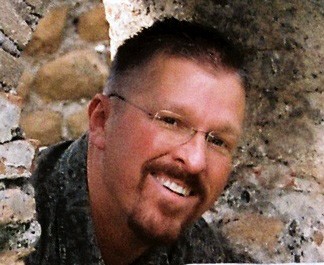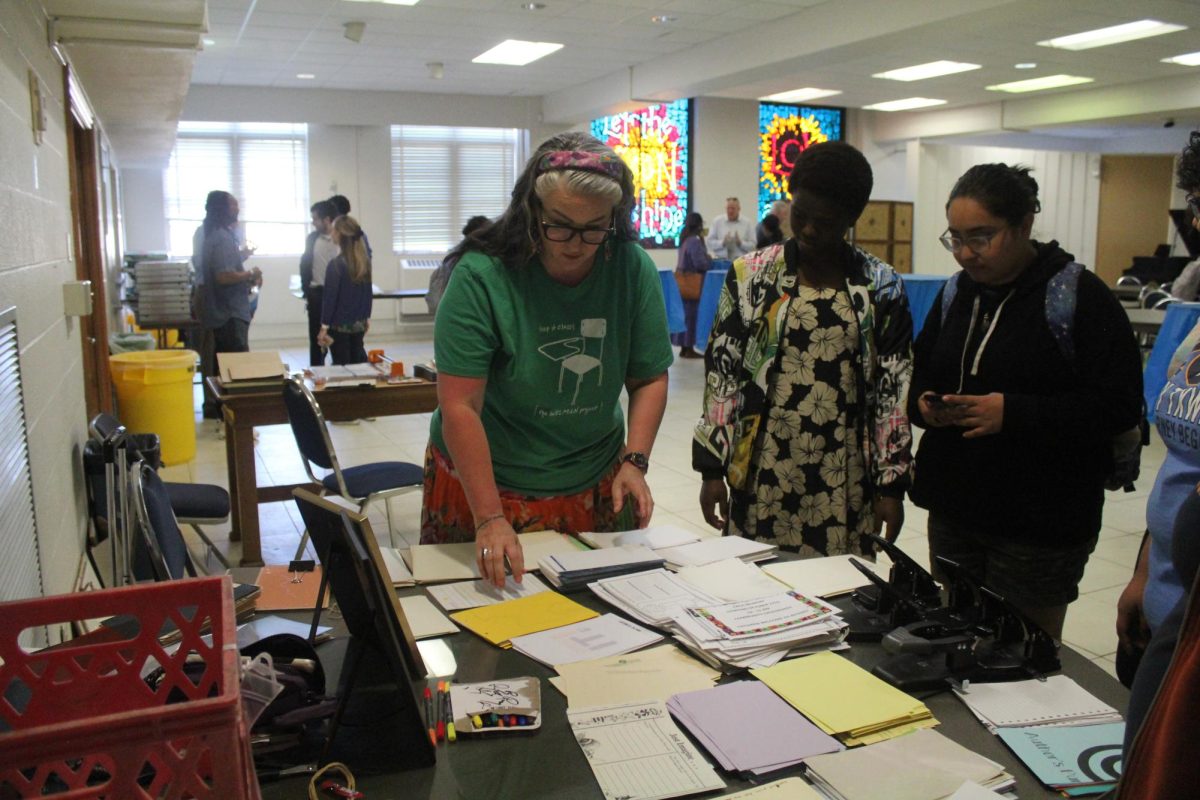When Michael Ward graduated from William Jewel College in the early 1990s as an honors student with a degree in political science and history, he had no idea what he wanted to do with his life. He took a job at a machine shop and had a hobby of shooting on the weekends.
“After a year, I knew I did not want to spend my life working in a machine shop,” Ward said. “I had been interested in shooting, and I shot at least once every weekend. At one point it dawned on me that it sure would be interesting if I could find some way of making a living with something that I enjoy.”
Ward did some searching and decided to go back to school to get his master’s in forensic science at National University in La Jolla, Calif. He wanted to be part of the firearms unit in the police department, though it was not as easy a path as he thought it would to be.
“It’s very hard to get your foot in the door in firearms [since it requires two years of paid training],” Ward said. “I actually met a gentleman who ran the firearms for the Kansas City Police Department, he basically told me, ‘You’re a good candidate, but it’s hard to get your foot in the door, you should come work crime scene for us.’”
Ward took that crime scene investigator position for the Kansas City Police Department in 1994 and eventually became part of their firearms and toolmarks unit until he left in 2006 to move to Fort Worth, where he continued to climb the ladder to where he is now.
Ward, now the professor of forensic science at Texas Wesleyan University, is the Forensic Division Manager (Crime Laboratory Director) for the Fort Worth Police Department and a single father of two children.
“I really enjoy the ability that scientists here have to make an impact,” Ward said. “The work we do has a huge impact on our criminal justice system, and it gets things [evidence] that make the difference between a person who did a crime being convicted, an innocent person being exaugurated, and a guilty person getting to walk free. I’ve always enjoyed that aspect of the job.”
Ward is not a big fan of the red tape from the city bureaucracy that comes with the job, but he has a strong passion for forensics, which was noticed by his coworker, Senior Forensic Scientist Sundaye Lopez.
“The first week he started working at the crime lab [in Fort Worth], he gave a short presentation for continuing education,” Lopez said. “As he was giving that presentation, I thought that he was a gifted speaker and you could tell that he was really passionate about what he was talking about. He also threw in a lot of personal information about himself. My first impression of him was that I liked him and I though he was going to do very well here in Fort Worth.”
Lopez meet Ward in 2006 when he came to the Fort Worth Crime Lab. She enjoys Ward being a professor because he brings her in as a guest speaker for his class.
“I like going in and speaking with the students, because I also enjoy what I do,” Lopez said. “Any time you can speak to people about what you do and hopefully cause them to take an interest in it; I think is a pretty good thing. I like him being a professor for that reason because it allows me to speak to people too and that’s awesome.”
Ward has been Lopez’s coworker for many years and her boss for about a year; Lopez believes he handles the job well.
“He definitely enjoys what he does and he’s always willing to help other people,” Lopez said. “If there was ever a question of something needing to be done in the lab, he would take it into consideration. Even though it wasn’t his responsibility to do, you could always count on him to give a good point of view or to give his thoughts on something.
“As a boss, I think that carried over, because dealing with people in the lab is probably not always an easy thing to do, but I think that Michael is very reasonable in how he handles people. He has common sense and he has the good of the lab in mind in everything that he does as a boss for the people in this lab and for the betterment of the place.”
Dr. Phillip Pelphrey, the associate professor of chemistry and department chair of chemistry and biochemistry, likes that Ward brings the experience of the field into the classroom.
“From a university standpoint, it is beneficial to have a professional working directly in the field of teaching for this course,” Pelphey said. “This allows them to bring certain insights into the classroom and is a positive for the students.”
Ward said being a professor is another career he stumbled into, when he filled in for a friend, Jamie Becker, who was a guest speaker for the previous forensic science teacher at Texas Wesleyan for firearms and toolmarks.
“[The previous forensic teacher] worked at several universities as an adjunct and I believe she got a full-time job at a university, so she stopped working at Wesleyan,” Ward said. “She actually said, ‘You did a really good job doing your presentation,’ so she actually recommended that I consider teaching once she left. She left the university and they contacted me or I contacted them, I don’t remember, back in 2009.”
Ward, who has been teaching at Texas Wesleyan since January 2009, has been here for almost ten years, and really enjoys it. He teaches Forensic Science I and taught Forensic Science II until the university discontinued it.
“I enjoy talking about forensics, but I don’t enjoy keeping track of grades and attendance,” Ward said. “I don’t necessarily enjoy that handful of students that complain every year, because they don’t get the grades they like. But I enjoy the teaching aspect and I enjoy it when somebody in the class really has an interest and I’m able to impart something that may be beneficial for them in their future career.”
Ward has developed a strict syllabus to combat class disruptions that occurred due to the class being four hours that he feels works pretty well.
“I became very strict on syllabi in order to create an environment that was conducive for learning for all students,” he said. “If you want to pay to go to the back row and sleep that’s fine, but if you’re going to disrupt the class [for being thirty minutes to an hour tardy], I’ll escort you out the door.”
Pelphey finds Ward’s class policy to be fair to all students.
“Over the years, I have found Mr. Ward to always be polite and punctual,” Pelphey said. “He is always willing to give students a fair chance in his courses, but will hold them to the expectations he sets on the first day of class.”
Pelphey feels Ward, who works two jobs, “strikes the right balance in the work he does for us.” Wesleyan also seems to appreciate him as a teacher, because the university was willing to accommodate his class schedule for him, when he was promoted in his other job.
“About a year ago, I said, ‘You’re probably not going to want to keep me, because I just don’t have the energy to teach Saturday classes. In my new job, I stay so busy that I need the weekend to decompress. I need a little time off on the weekends, so I can’t teach Saturday mornings anymore,’” Ward said. “I was very shocked when the university said, ‘That’s all right, we’ll just put all forensic science classes Wednesday, because we want to keep you teaching.’”
Though Ward has been successful in the field of forensics, he almost gave it all up for his children.
“For four years, I drove between Kansas City and here (Fort Worth) every other weekend,” Ward said. “Twice a month I came here, that was 560 miles each way, so I was driving 1,200 miles every other weekend. I actually said, ‘If I left forensics that’s perfectly fine. I need to be where my children are.’ Lo and behold, I was driving back from Fort Worth right after Christmas time, and I saw an advertisement for a position in the firearms and toolmarks unit and I said, ‘That must be for me.’”
Ward got the position and was able to spend more time with his son and daughter, who are his number one priority. He’s been a single dad for 15 years.
“We do everything together,” Ward said. “It’s harder with my son [now], because he moved to Austin two months ago. He started working in a hospital and has gotten married, so I do not see him as much, but I talk to him on the phone all the time. I see my daughter every day. My daughter and I are going to spend Halloween walking our dog in the middle of the night, going to haunted houses, and watching scary movies.”
Ward says the hardest thing about being a single dad was staying connected to his teenage daughter. Lopez admires the relationship Ward has maintained with his kids while working his two jobs.
“He’s very close with his kids and he has a good relationship with them,” Lopez said. “He’s very much involved in their lives and knows what’s going on with them. I think for today’s single father that’s a rare thing to come by. I really respect him for it and I think a lot of single fathers could learn a lot from Michael in that aspect.”









![Pippin, played by Hunter Heart, leads a musical number in the second act of the musical. [Photo courtesy Kris Ikejiri]](https://therambler.org/wp-content/uploads/2025/04/Pippin-Review-1200x800.jpg)
![Harriet and Warren, played by Trinity Chenault and Trent Cole, embrace in a hug [Photo courtesy Lauren Hunt]](https://therambler.org/wp-content/uploads/2025/02/lettersfromthelibrary_01-1200x800.jpg)
![Samantha Barragan celebrates following victory in a bout. [Photo courtesy Tu Pha]](https://therambler.org/wp-content/uploads/2025/05/20250504_164435000_iOS-834x1200.jpg)





![Hunter Heart (center), the play's lead, rehearses a scene alongside other student actors. [Photo courtesy Jacob Sanchez]](https://therambler.org/wp-content/uploads/2025/04/thumbnail_IMG_8412-1200x816.jpg)
![Student actors rehearse for Pippin, Theatre Wesleyan's upcoming musical. [Photo courtesy Jacob Rivera-Sanchez]](https://therambler.org/wp-content/uploads/2025/04/Pippin-Preview-1200x739.jpg)
![[Photo courtesy Brooklyn Rowe]](https://therambler.org/wp-content/uploads/2025/05/CMYK_Shaiza_4227-1080x1200.jpg)

![Lady Rams softball wraps up weekend against Nelson Lions with a victory [6 – 1]](https://therambler.org/wp-content/uploads/2025/04/Screenshot-2025-04-04-100924-1200x647.png)

















